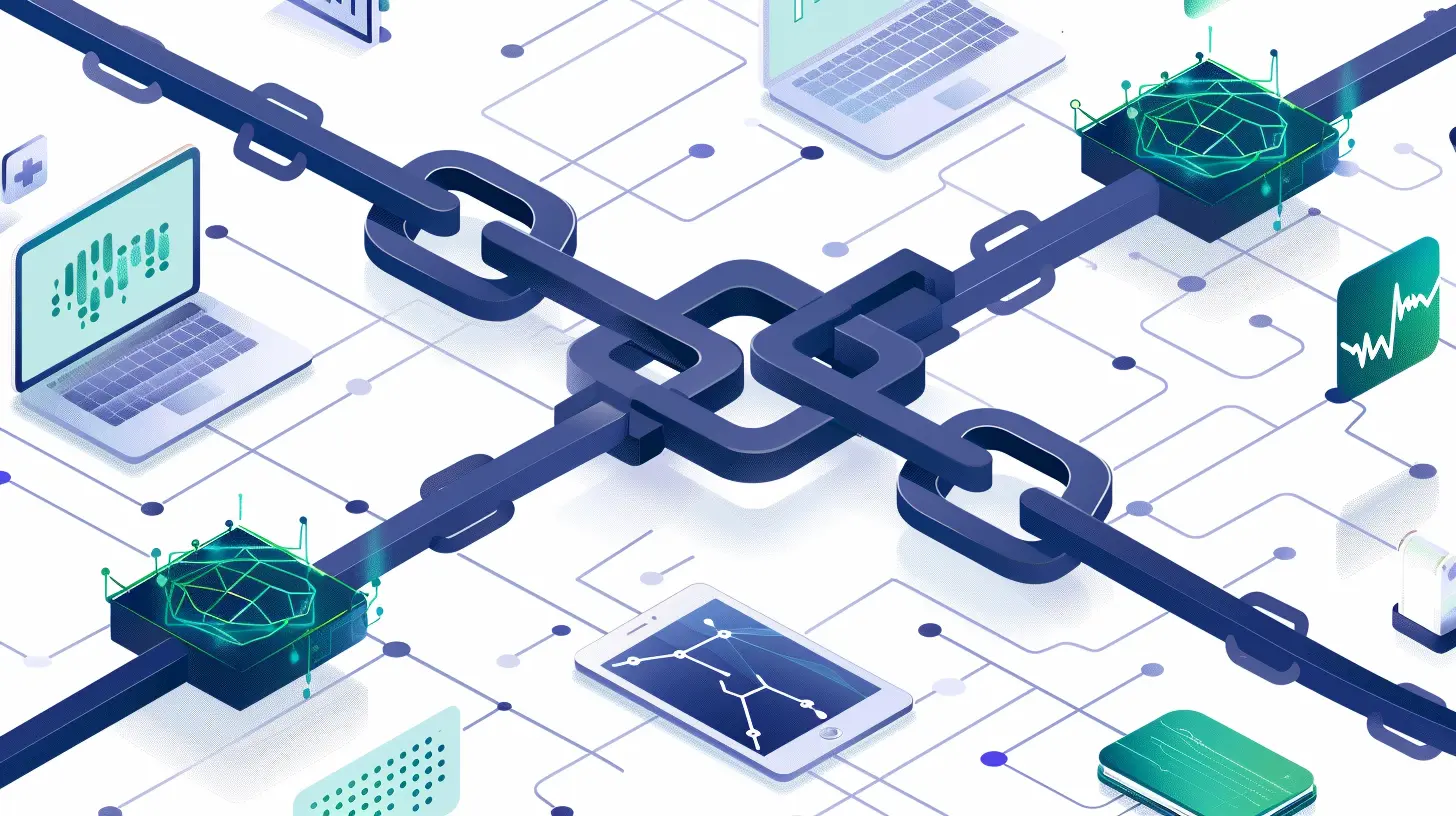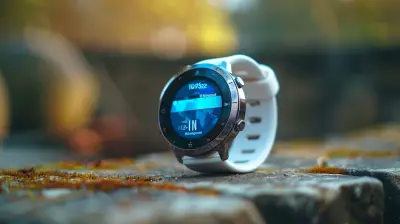How Blockchain is Transforming Healthcare Data Management
4 September 2025
In the age of data breaches, clunky paperwork, and fragmented patient records, the healthcare industry has long been craving a revolution. Enter blockchain. Yep, that same tech behind Bitcoin is now stepping into hospitals, clinics, and research labs—only this time, it’s not about cryptocurrency. It's about fixing the mess that is healthcare data management.
Let’s be honest: healthcare data has been a ticking time bomb for years. From outdated systems to doctors scribbling illegible notes on paper, it's been chaos on a digital level. But blockchain is shifting the entire game. And not just in a shiny, theoretical way. We're talking real-world applications that are improving how data is stored, shared, and secured in the medical world.

The Chaos of Traditional Healthcare Data Systems
Before we get into all the ways blockchain is changing the game, let’s talk about why the current system is broken.Think about this: every time you visit a new doctor, you fill out the same long forms—name, date of birth, medical history—and you just know half that information is floating around somewhere else already. But your new doctor doesn’t have access to it. Why? Because healthcare systems don’t talk to each other.
Hospitals, labs, insurance companies—they all have their own databases. And those databases often don’t connect. That means miscommunication, repeated tests, and wasted time. Worse yet, your sensitive health data is often stored in outdated systems that are vulnerable to hacks. In fact, healthcare data breaches have been among the costliest across all industries.
So yeah, we need something better. And that “something” might just be blockchain.

What Is Blockchain, Really? (No Tech Jargon, Promise)
We hear the word a lot, but let’s break it down in plain English.Blockchain is essentially a digital ledger—a way of recording data securely and transparently. Think of it like a Google Doc that everyone can see, but no one can alter without permission. Once information is added, it’s locked in place. It can’t be changed, deleted, or messed with behind closed doors.
Each new piece of data forms a “block,” and these blocks are connected (like a chain—get it?). The beauty of blockchain is that it’s decentralized. That means no single entity holds all the power. Instead, data is shared across a network, and all members must agree before anything new is added. It’s like having a group of referees checking every play in a football game—ensuring everything's fair, and no one’s cheating.
Sounds perfect for managing sensitive data, right?

How Blockchain Is Fixing Healthcare Data Headaches
Let’s dive into the juicy part. Here’s how blockchain is shaking up the healthcare space in real, meaningful ways.1. Secure and Tamper-Proof Patient Records
First off, the biggest winner? Patient records.With blockchain, your medical information can be stored securely in a digital format that's virtually unhackable. Once your blood test results or MRI scans are recorded in the blockchain, that data is locked. No one—not even a rogue hospital admin—can alter it without leaving a trail.
This tamper-proof quality builds trust, both for patients and providers. Imagine being able to access your entire medical history with a few clicks, knowing it hasn't been tampered with. That’s a game-changer.
2. Interoperability Between Systems
Here’s where things get even more exciting. Remember how we said healthcare systems don't communicate well with each other? Blockchain changes that.By creating a universal, decentralized ledger, blockchain can connect different healthcare providers, insurers, and labs. Think of it as a common language that every system can understand. Now, whether you're in New York or Nairobi, your medical records can follow you—safely and seamlessly.
So if you travel, change doctors, or transfer hospitals, your medical history doesn’t get lost in the shuffle. No more repeated tests or forgotten allergies. Just complete, portable information.
3. Patient-Centered Data Ownership
Traditionally, hospitals and clinics own your data. With blockchain, that power shifts—finally.Blockchain allows patients to have full control over who sees their data, when, and for how long. Want to share your X-rays with a second opinion doctor? Done. Need to revoke access after your treatment ends? Easy.
It’s like having a remote control for your own health data. No more calling the hospital five times asking for your records. You’re in charge now.
4. Improved Clinical Trials and Research Transparency
Clinical trials have long suffered from issues around data integrity and transparency. Researchers might “massage” numbers, or data could mysteriously go missing when results don’t favor a drug.Blockchain can serve as a transparent, verifiable log of all research activity. Every trial entry, patient consent form, dosage update—it’s all documented and time-stamped in a way that’s visible to regulators and stakeholders alike.
This not only boosts trust in the results but also speeds up the process of drug development and approval. For those suffering from chronic illness or waiting on new treatments, this could be life-changing.
5. Cracking Down on Fraud and Billing Abuse
Healthcare fraud is no joke. Fake bills, phantom treatments, and corrupt billing practices cost billions each year.Blockchain helps eliminate these shady practices by recording every transaction securely and transparently. Imagine an insurance claim that’s processed in real-time, verified by blockchain, with zero room for guesswork or manipulation. That not only cuts down on fraud but also speeds up reimbursements for providers and patients.
6. Supply Chain Management for Pharmaceuticals
Counterfeit medication is a massive global problem. Blockchain can trace every step of a drug’s journey—from manufacturer to pharmacy—ensuring it’s authentic.If a batch has issues, recalls can happen faster. If a patient is prescribed a rare or sensitive drug, doctors can verify its origin and authenticity before it’s administered.
Big pharma already knows this is the future. Major players are investing heavily into blockchain-powered supply chain solutions.

The Roadblocks: What’s Slowing Things Down?
Of course, no tech is perfect. Blockchain has its fair share of hurdles.- Scalability Issues: Handling millions of patient records isn’t easy. Blockchain still struggles with speed and capacity when compared to traditional databases.
- Regulatory Uncertainty: Governments and healthcare regulators haven’t quite figured out how to handle blockchain-based systems. Laws are still catching up.
- Adoption Resistance: Hospitals and providers are notoriously slow to adopt new tech. There's also the cost and complexity of replacing legacy systems.
Still, these hurdles aren’t deal-breakers. They're just speed bumps. As with any new technology, there's a learning curve—but the potential upside is massive.
Real-World Examples: Blockchain in Action
So you might be wondering, “Is anyone actually doing this?” Yep. Plenty.- MediLedger: A blockchain network used by major pharmaceutical companies to track drug authenticity and prevent counterfeit meds in the supply chain.
- Patientory: A platform that allows patients to store and manage their health data securely on the blockchain.
- BurstIQ: Offers blockchain solutions for managing big health data, focusing on personalized care and health insights.
More startups and even governments are jumping on board daily. The train is moving, and it’s picking up speed.
Future Possibilities: What’s Next?
Where does this go from here? The possibilities are endless.Imagine AI algorithms accessing blockchain-based health data to predict disease outbreaks. Or wearable devices syncing your real-time vitals directly to your blockchain health record, which alerts your doctor the moment something seems off. We’re talking about predictive, preventive healthcare—rather than reactive care.
And insurance? Think automated, smart-contract-based claims that get approved instantly based on verified blockchain records. No more back-and-forth paperwork or “missing documents” drama.
It's not science fiction. It’s already on the way.
Final Thoughts: Why This Matters Now More Than Ever
The healthcare system isn’t just broken—it’s bursting at the seams. Data mismanagement, poor communication, and security issues have plagued it for decades. But blockchain offers a real, concrete path forward.No, it’s not a silver bullet. And no, it won’t fix every issue overnight. But it’s a foundational shift—a rethinking of how we treat data, privacy, and trust in healthcare.
It puts patients back in control. It connects the dots between systems. And it lays the groundwork for a safer, smarter, more efficient healthcare future.
So, whether you're a tech enthusiast, a healthcare worker, or just someone who wants better control over your health records—blockchain is something to keep on your radar. Because the next time you walk into a hospital, you just might see it at work behind the scenes, quietly transforming everything.
all images in this post were generated using AI tools
Category:
Blockchain TechnologyAuthor:

Michael Robinson
Discussion
rate this article
1 comments
Brick Brown
Blockchain: A bright future for secure healthcare data! 🚀
September 9, 2025 at 11:13 AM

Michael Robinson
Thank you! Excited to see how blockchain enhances data security and transparency in healthcare! 🚀


